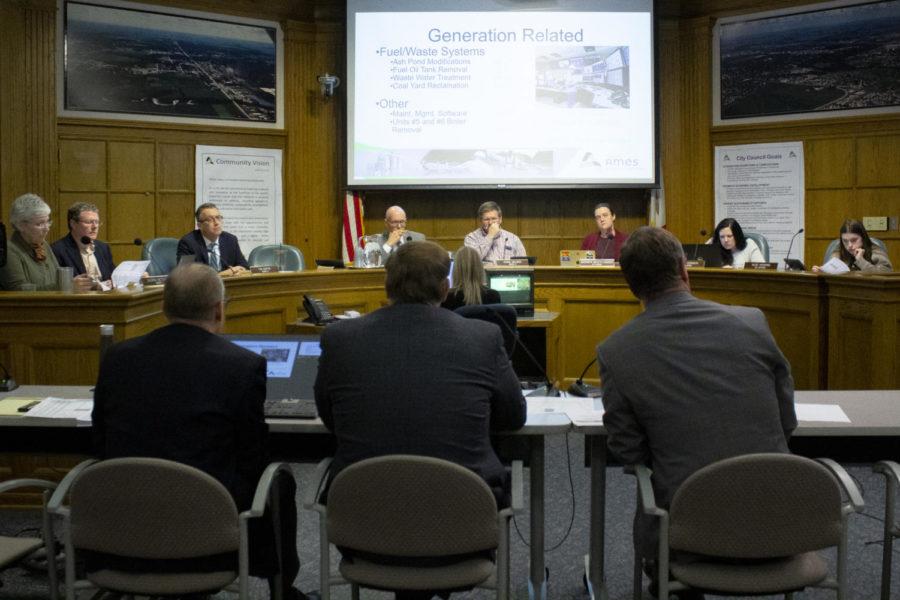Ames City Council discusses illicit massage parlors and sex trafficking
Kennedy DeRaedt/Iowa State Daily
Ames City Council meets Jan. 15 in City Hall to discuss the 2019-2024 Capital Improvements Plan. Staff members gave a presentation on their recommendations for the next five years.
April 16, 2019
Ames City Council discussed potential methods of combating the issue of illicit sex trafficking and illegitimate massage therapy businesses in the Story County area at its Tuesday evening meeting.
Members of the council discussed various ordinances that have been put into place across the state of Iowa – particularly those in Des Moines, Iowa City, Johnston, and Cedar Rapids. In addition to these particular ordinances, the amount of local involvement that is necessary or desired was also brought into question.
The council made a motion to begin the process of implementing an ordinance following that of Des Moines, provided that some amendments would be made to allow it to better fit the needs of the Ames and Story County communities.
The ordinance put in place by Des Moines requires that all massage therapists have a state license and that it be available at all times. Failure to do so allows the Police Department to place a placard in front of the business to tell potential customers that it has been deemed unsafe until an official license has been obtained.
Iowa City’s ordinance is similar to that of Des Moines, however it requires that, upon the city’s request, the business must be able to provide credentials of individual employees. Cedar Rapids’ ordinance — which is generally regarded as a more intensive approach — requires that massage therapy businesses obtain not only a state license, but a city license as well. The city license comes at a $60 biannual fee, which requires that criminal background checks be completed for massage therapists.
The audience consisted of both concerned citizens and many licensed massage therapists who practice throughout Ames and the Story County area. Two of the audience members and the requestors of the massage establishments/human trafficking workshop, George Belitsos and Michelle DeMarie, had comments.
“These illicit massage businesses have moved out of towns where they are under inspection, where there is more risk involved, and they have moved to friendlier places, like Ames, where there is less risk of being discovered,” said Belitsos, speaking on behalf of the Network Against Human Trafficking and Slavery.
The majority of comments from the licensed massage therapists in the audience were in favor of drafting an ordinance similar to that of Des Moines, as it requires the least dedication of city resources and puts the least amount of strain on legitimate licensed massage therapists.
“We were very thrilled when the Des Moines ordinance passed. It’s very simple, not just for us, but it doesn’t drain the resources that are already […] stretched a little bit locally. The Des Moines ordinance is very attractive to us,” said DeMarie, speaking on behalf of her fellow licensed massage therapists.
Drafting and implementation of an ordinance will be placed as an item on the council’s agenda, after which it will then come back as a staff report to be discussed by the council and once again opened for public input.







